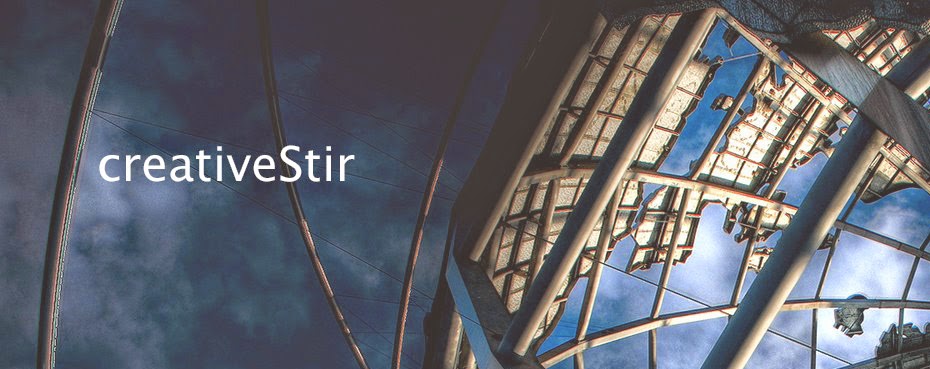I read an article a few weeks ago called Beyond the LMS, (Learning Management System) by Audrey Watters.
I can't say that I disagree with anything she states in the article.
Much of Watters work centers on the collegiate experience, post secondary education, something she states openly and often.
So… does an LMS have value in secondary education?
I've seen that it can have benefits, yes.
Management
There's no way around it, there are management trials for teachers in k-12 education. Attendance, assessment - formative and summative, comments and the like, reports, grading and narrative comments. There's a cumbersome paperwork flow to it all. Having that workflow viewable and workable in one place helps.
Many States and schools have Common Core and arrays of other assessments, - proficiency based, graduate expectations, etc to process as well. An LMS is helpful on these fronts. Standards can be imported so teachers don't have to replicate all that data.
An LMS that syncs with SMS (school management systems - attendance, grades, transcripts, report cards, etc) can also save teachers from replicating data input. That's a big time saver, especially when you work with a lot of students.
It helps students as well. Centering that workflow in some ways has advantages. Take more than 5 courses in a semester that all use multiple web sites and you'll see what I mean.
The real salt though is...
Enhancing teaching and learning
Chris Lehmann's article called The Seductive Allure of Ed-Tech Reform says what I'm thinking here well.
"Educational technology doesn’t make it cheaper to teach the kids. It will transform what we do as teachers and as learners. And certainly there are moments where technology can build us a far better textbook than we ever had. But just as the textbook wasn’t enough, neither is the computer. Technology can should and will cause our profession to evolve, but the promise of technology should never be that a computer can replace a teacher, but rather how it can enhance what teachers and students can do and learn together."
The best LMS implementations I've found center on expanding pedagogical practices and learning opportunities. They help teachers move teaching and mentorship practices therein forward. They help promote collaboration and discussion groups. They present a scaffolding for students and adults to learn skills. As I mentioned above, they can serve as a platform to push grading practices and discussions therein along. It's important to stir such conversations in schools, else they go on business as usual focusing on retention.
Here's one I keep coming back to though, over and over again, and the one I'll elaborate on the most.
Transparency
I've found that 'creating transparency' is necessary in k-12 education. Getting insight into what 'run-time' looks like in a class is important for students, parents, teachers, and yes… administrators. I've found it can be a very healthy practice for all involved… I'll say it… especially for those folks who's classrooms are, well, not that healthy.
If it's a goal to get parents involved in something other than viewing report cards, one portal via an LMS can help.
An LMS can help bring a higher level of transparency into the work students are doing and being asked to do in classrooms. Students, teaching peers, administration, and parents get a runtime view into what was previously a closed environment, a citadel that was only open for one formal evaluation and a couple parent teacher conferences. It's a much needed window into environments that are not so innovative or engaging. There's a sad truth to that… but it's a truth nonetheless. An LMS initiative can motivate some.
Transparency extends to many levels
In the best LMS implementations I've found, teachers are given permission to see the work of their teaching peers within their department, and into others departments as well. Increased transparency can help teachers learn from peers. Giving teachers the time and encouragement to pursue such goals is also key. I've helped many schools address some frustrations on and about PD by adjusting their schedules. That's fodder for another post though.
Also in the best implementations, teachers are given the opportunity to see student work in similar and other disciplines. Viewing a 'grade' in a transcript ultimately doesn't tell you much after all, right. Seeing a collection of work can save teachers form having to, essentially, reassess every student in each class from scratch. This level of transparency can help promote discussions in schools on what 'proficiency based learning' actually could be.
Students too
If the LMS is run well philosophically, students should be able to see, view and learn from their peers. Communication, discussion groups, peer review, etc.
'Real publishing' is not LMS Fodder
| ||
As Watters points out, and I agree completely, students should have the challenge to publish meaningful work to the web, to build those skills, and to develop their own online footprint.
|
So many schools simply stop at or within the LMS. No discussions extend toward real, meaningful project or personal publishing… of the development of published personal voice.
My work with students in the rLab at Burr and Burton, publishing real projects to the web was immensely valuable for all involved, and for others abroad who found value in our work. We did a lot of development work in wikis, blogs, and collaborative Google docs behind the scenes… and then published as a class and individually in their own blogs and sites of their choice.
Just do it… because it's worthwhile
For some students, publishing to the real web, the live Internet has no meaning. It's daunting. It's challenging. But for all those reasons I think it's a worthwhile challenge to pursue.
Is a personal blog / digital footprint to the web 'the new resume' as some tout? Likely so, I think, in many circles.
I do like the question appearing on many college applications now asking students something to the effect of 'show us what you've created.' That's a far richer angle than simply looking at your SAT scores, class rank and how many AP classes you night have under your belt.
As Vermont heads into the 'Flexible Pathways' initiative, Act 77, a Personal Learning Plan (PLP) for every student… and many other opportunities (dual - enrollment, etc), this presents another opportunity for discussions on 'digital citizenship' to evolve. Meaningful work, collaborative threads, networking socially, and building skills in areas of interests. I feel 'real' student publishing… the challenge to publish project work, writing, and develop their voice confidently and thoughtfully should be pursued… beyond working within an LMS.
Beware 'Portfolio' Shtick
What is a 'personal learning plan?' What is a 'portfolio?' What has value?
I've never met an employer or a college for that matter that looks at a comprehensive portfolio of student work in grades 9-12. Never. I think driving students toward that end, developing a 'comprehensive portfolio' of their work and selling that goal, is dishonest and mostly ends up being centered on busy work.
Summary
"Sometimes you want these basic course functions to be simple and easy so you can get to the real work of teaching and learning."
True.
An LMS can help shift teaching practice toward more collaborative, constructivist goals. It can help create movement.
Encouraging students to publish engaging and meaningful projects and personal websites to the open, interactive web and all the skill development and great discussions possible therein should also be a goal.
I reviewed all these thoughts with a good friend recently. We stumbled briefly around the idea that maybe an LMS is just poorly titled. Maybe…
- 'Learning Development Space'
- 'Learning Space'
- or maybe 'Sandbox'
would be better. It was a short conversation. No matter what it's called, schools need to create better philosophical goals for using an LMS, and also build in real publishing opportunities.
My thanks to Audrey Watters for another thought provoking post.
I'm still thinking about it all. Will be for some time.


